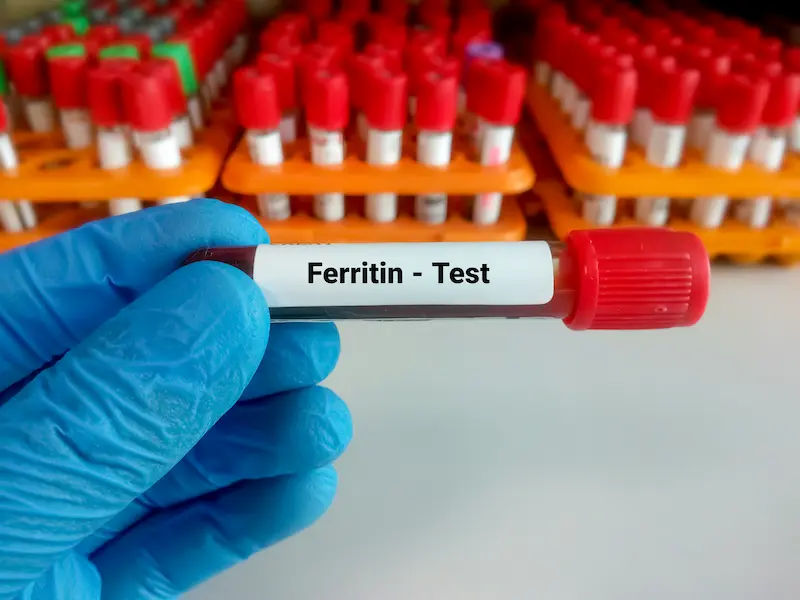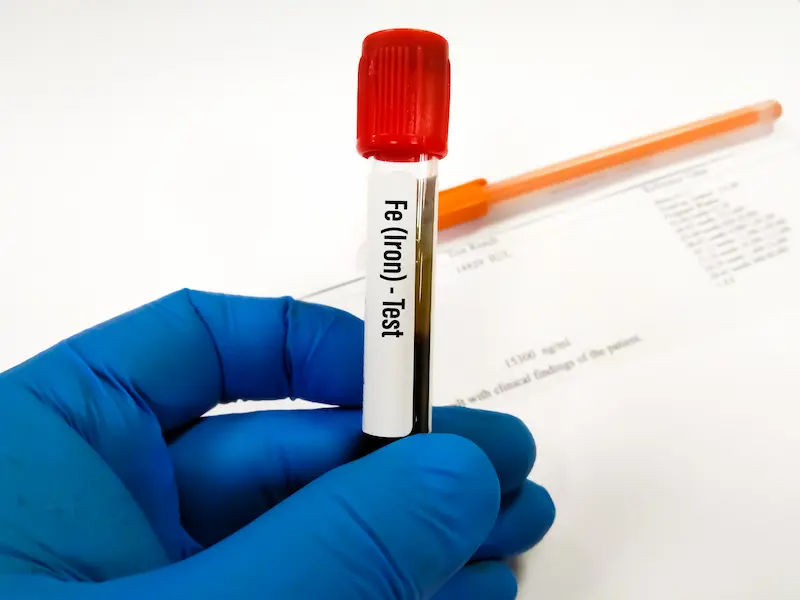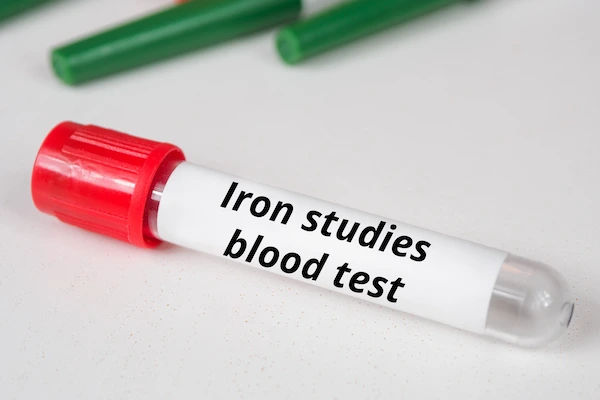Blood Tests to Track Women's Health After Childbirth
Feeling drained or shedding hair after childbirth? Discover essential postpartum blood tests that help track recovery, detect imbalances, and support your well-being.

Written by Dr. Dhankecha Mayank Dineshbhai
Reviewed by Dr. Siri Nallapu MBBS
Last updated on 9th Sep, 2025
.webp?tr=q-80,f-webp,w-350,dpr-2,c-at_max 700w)
Introduction
Bringing a new life into the world is an awe-inspiring event, but it can take a significant toll on a woman's body. The weeks and months following delivery are often filled with sleepless nights, physical discomfort, mood swings, and constant fatigue. Amid the focus on newborn care, many mothers silently struggle with health issues that go unrecognised.
Even if you feel you're managing, symptoms such as persistent exhaustion, sluggish recovery, and excessive hair loss may indicate deeper imbalances in your body. This is where postpartum blood testing becomes essential. It offers critical insight into how your body is healing and what it needs to function optimally.
In this comprehensive guide, we'll cover key blood tests recommended for women after childbirth, especially if you're experiencing energy dips, delayed healing, or hair shedding and how these tests can help restore your vitality.
Why Blood Tests Matter After Having a Baby
Pregnancy and childbirth place immense demands on your body. After delivery, your system must repair tissue, balance shifting hormones, recover from blood loss, and meet the nutritional needs of breastfeeding, all while you're coping with sleep deprivation and stress.
During this period, symptoms like fatigue, foggy thinking, and poor hair quality are common. However, they can sometimes signal deficiencies or disorders that, if left unchecked, may lead to long-term health issues.
Routine blood work can help:
- Identify vitamin and mineral deficiencies
- Detect thyroid or hormonal imbalances
- Monitor organ function
- Reveal signs of anaemia or infection
- Guide targeted nutritional and medical interventions
Top Blood Tests to Consider in the Postpartum Phase
Your body undergoes significant changes after delivery, and some of these changes may not be immediately visible. These key blood tests, conveniently available through Apollo 24|7, can help track your recovery and support your overall well-being.
1. Complete Blood Count (CBC)
Why it's essential:
Labour and delivery often lead to blood loss, which can leave you feeling weak or tired. A CBC provides a detailed examination of your blood, including haemoglobin, red blood cells, white blood cells, and platelets.
What it checks for:
- Low haemoglobin (anaemia)
- Ongoing infections or inflammation
- Platelet count (essential for clotting)
When to get tested:
Within the first 4–6 weeks after childbirth, especially if you experience heavy bleeding or still feel unusually exhausted.
2. Iron Profile (Including Ferritin)
Why do you need it?
Even if your haemoglobin is fine, low iron storage (Ferritin) can still leave you fatigued and foggy. Iron is vital for oxygen flow in the body, and when it runs low, so does your energy.
What it reveals:
- Stored iron levels (Ferritin)
- Blood iron content
- Your body's ability to transport and bind iron
Possible signs of low iron:
Cold hands or feet, hair loss, brittle nails, or difficulty focusing.
3. Thyroid Function Tests (TSH, T3, T4)
Why it matters:
Your thyroid gland can go off balance after childbirth. This is more common than many realise and can lead to energy slumps, mood changes, or weight fluctuations.
What it can pick up:
- Hypothyroidism (sluggish thyroid)
- Hyperthyroidism (overactive thyroid)
Symptoms to watch for:
Unexpected weight gain or loss, irritability, trouble sleeping, or feeling too hot or cold.
When to test:
Anytime between 6 and 12 weeks postpartum, or sooner if symptoms appear.
Why it's worth checking:
Low vitamin D levels is widespread, especially among Indian women. After pregnancy, levels can drop further due to reduced sunlight exposure and increased nutritional demands.
Low levels may cause:
Muscle cramps, joint pain, low immunity, fatigue, or hair loss.
Best time to check:
Within 1 to 3 months after giving birth, or earlier, if you have ongoing body aches or feel constantly tired.
Get These Tests To Monitor Women Health
Why it's important:
B12 helps your nerves, brain, and blood cells function properly. A deficiency can creep in quietly, especially if you follow a vegetarian diet.
Warning signs:
Tingling hands or feet, mood swings, poor memory, pale skin, or fatigue.
Who should test:
If you're a vegetarian, anaemic, or experiencing nerve sensitivity or brain fog.
6. Blood Sugar Panel (Fasting Glucose & HbA1c)
Why is it needed?
If you had gestational diabetes during pregnancy, you're at a higher risk of developing type 2 diabetes later. Even if you didn't, sugar fluctuations can still happen postpartum.
What it helps detect:
- Your current blood sugar level (fasting glucose)
- Your 2–3 month average sugar levels (HbA1c)
When to check:
At 6 to 12 weeks postpartum or earlier if you're experiencing excessive thirst, frequent urination, or unexplained fatigue.
Why it's important:
Pregnancy can temporarily increase your cholesterol and triglyceride levels. If they don't come down after delivery, they may increase your long-term risk of heart disease.
What it measures:
- Total cholesterol
- HDL and LDL levels
- Triglycerides
The ideal time to test:
Between 3 and 6 months postpartum, especially if you had high BP or gestational diabetes.
8. Liver & Kidney Function Tests (LFT/KFT)
Why are these worth it?
Painkillers, pregnancy-related complications, or infections may affect how well your liver and kidneys work. These organs are vital for filtering waste and processing medications.
Get tested if you have the following:
- C-section or prolonged pain medication use
- High blood pressure or swelling during pregnancy
- Symptoms like nausea, bloating, or water retention post-delivery
9. Hormonal Panel (Oestrogen, Prolactin, FSH, LH)
Why does this test help?
After delivery, your hormone levels undergo a dramatic shift. If your periods haven't returned, or if you're facing hair fall, low sex drive, or trouble with breastfeeding, this panel can provide valuable insights.
This test can explain the following:
- Irregular or missed periods
- Postpartum hair thinning
- Milk supply concerns
- Low mood or libido
When to consider it:
If menstruation hasn't resumed by 6 months or if you feel "off" hormonally.
Schedule a Hormonal Panel Test
Hair Loss after Childbirth – When It Needs Attention
Noticing more strands on your pillow or in the shower a few weeks after delivery? You're not alone. Increased hair shedding is a common postpartum experience, often beginning around 2 to 4 months after childbirth. This condition, known as postpartum hair fall, is usually a temporary reaction to hormonal shifts, especially the drop in oestrogen levels after pregnancy.
For most women, the hair growth cycle stabilises within a few months. However, sometimes, ongoing or severe hair loss may indicate an underlying health issue.
Watch Out for These Red Flags:
- Hair fall that lasts longer than six months
- Noticeable thinning along the hairline or crown
- Bald patches or uneven shedding
- Feeling persistently tired, low on energy, or mentally foggy, along with hair loss
These signs could be your body's way of signalling a nutrient deficiency, thyroid issue, or anaemia, all of which are common after delivery.
Key tests to consider: Thyroid profile, CBC, Ferritin, Vitamin D, and B12.
Postpartum Wellness: Simple Habits That Can Help You Heal Better.
Recovery after childbirth isn't just about rest. It's about staying aware of how your body is coping and responding to the changes that occur. Here are a few straightforward steps you can take to support your physical and emotional health during this crucial time:
- Schedule essential blood tests within 6 to 8 weeks after delivery, especially if you're feeling unusually tired or unwell.
- Take persistent fatigue, emotional shifts, or mental fog seriously; these could be signs that your body is struggling to recover.
- Note down daily patterns, such as sleep, mood, and energy levels, using a notebook or a health-tracking app.
- Use reliable digital platforms like Apollo 24|7 to book tests or talk to a doctor from the comfort of your home
- Plan follow-up checks every few months, especially if symptoms persist or your recovery seems slower than expected.
Remember, listening to your body and acting early can make a big difference. A little attention now can help you feel stronger, more energised, and ready to enjoy the journey of motherhood with confidence.
Final Thoughts: Make Your Health a Priority Too
While caring for your newborn, it's easy to put your own needs on the back burner. However, those lingering symptoms, such as ongoing tiredness, thinning hair, or mood swings, could be quiet signs that your body needs attention and support.
Running a few targetling but also helps you feel more energised, clear-headed, and emotionally steady.ed blood tests can reveal underlying issues, such as vitamin deficiencies, thyroid imbalances, or delayed recovery, that may otherwise go unnoticed. Early intervention not only speeds up hea
With platforms like Apollo 24|7, getting these tests done is now simpler than ever. You can schedule lab visits from home and access your reports quickly so your recovery fits into your life, not the other way around.
Remember, when you take care of your health, you're better equipped to care for your baby and thoroughly enjoy this beautiful chapter of motherhood.

.webp)

